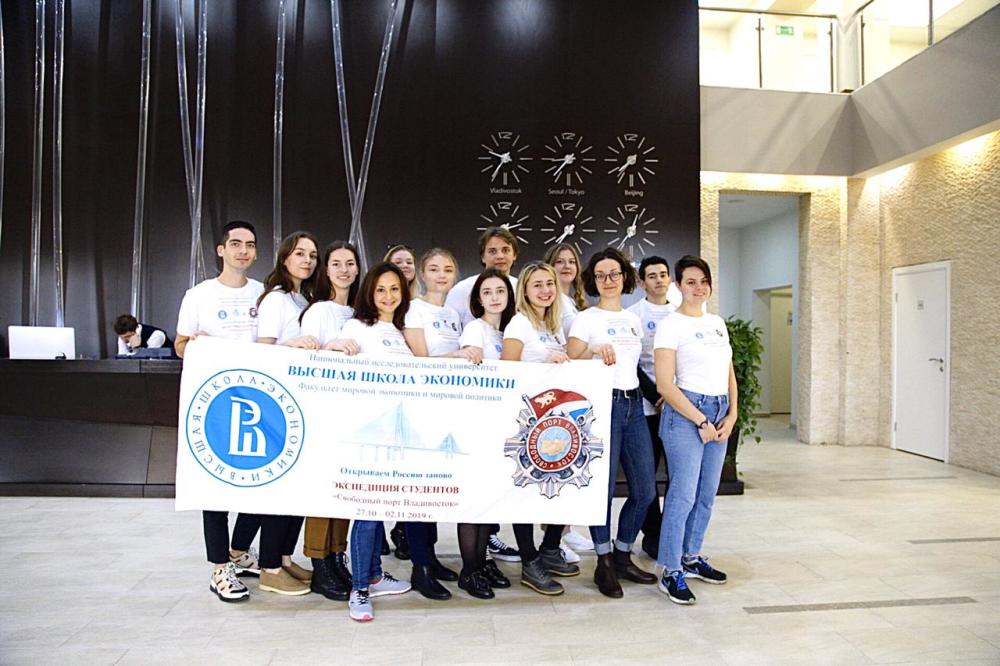Projects, Research and Internship
Project work offers students the opportunity to apply their acquired knowledge and skills. The curriculum includes three main courses:
- Data Culture.
- Capstone Design for International Studies I.
- Capstone Design for International Studies II.
Data Culture. The development of computer technologies, methods for collecting and processing information and data, and the accumulation of what we now call ‘big data’ – these are things that affect all areas of activity. It is clear that many professions have changed entirely, and it is now necessary for every educated person – that is, not just IT specialists – to be skilled in working with different types of information. For this reason, it is necessary to teach students in all fields to understand the capabilities and limit of big data, as well as the potential and particulars of machine learning. In addition, students in such fields as economics, management, sociology, political science, etc., must be able to utilize the latest technologies. Please see the syllabus to learn more.
Projects 'Capstone Design for International Studies I, II' are designed to provide students the opportunity to work with real-world, open-ended, and interdisciplinary challenges in International Studies. Students will get to learn about the approaches and theories generally used within this field and apply them to identify problems and find solutions on their own. By working in teams, they can develop their creative thinking, practical ability, leadership skills and group dynamics.

The Scientific and research seminar are designed to provide students with analytical and research skills. Such seminars address current issues in International (East Asian) Studies. Furthermore, a large part of seminar activities is dedicated to developing Bachelor’s theses.
The main purpose of such seminars is to cultivate students’ proficiency in methods and techniques of expert and analytical work, as well as help them properly understand the conditions under which research in International Studies is conducted.
Internships are an integral part of degree programmes and designed to help students acquire professional experience, as well as improve and enhance the knowledge and competencies obtained throughout their theoretical education. The programme also provides students with an extensive selection internships and job activities.
Internship
Undergraduate Internship is a compulsory element in the 4th year of Economics and Politics in Asia Programme.
The total duration of the internship is 4 weeks.
Intermediate certification of internship is carried out in the form of an exam with a rating on a 10-point scale. The exam is conducted in the form of an assessment of the reporting documentation and is held by the teacher responsible for the implementation of the internship at the Programme.
In the course of preparation and internship, the student must provide the person responsible for the internship with the following information and prepare the necessary documentation:
Before the internship
- Place of internship
- Individual task confirmed with the Head of internship
- Agreement with the organization (during internship in external organizations instead of HSE)
During the first week of internship
- Confirmation of attending a fire safety and life safety briefing (during internship in external organizations instead of HSE)
- Internship Schedule
After the internship is concluded (not later than 2 weeks)
- Internship Diary
- Internship Report
- Review of the organization / unit of the HSE
Samples of required documents are in the Internship Syllabus
